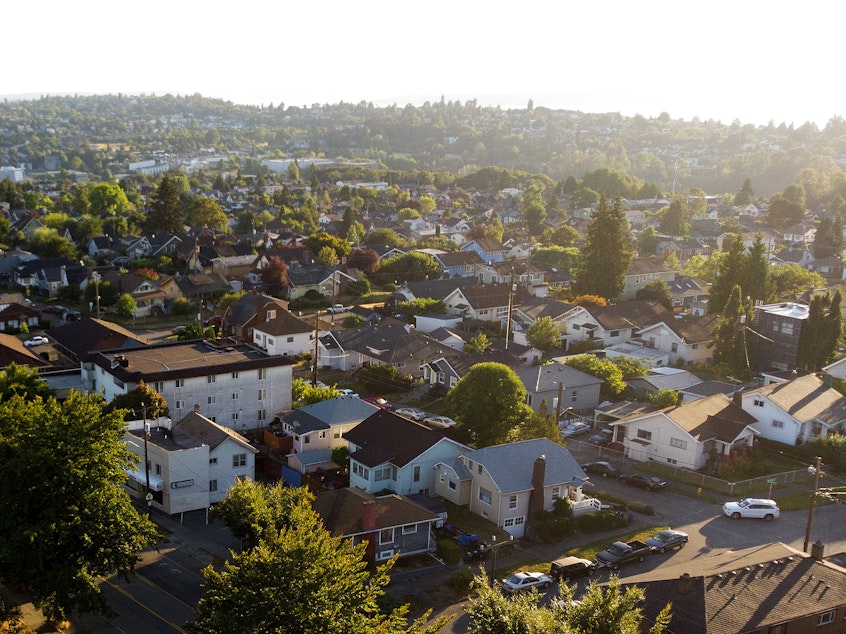What can Seattle learn from Spokane's 'missing middle housing' solution?

The city of Spokane voted to allow “missing middle housing” across the city earlier this month.
That means it’s now legal to build duplexes, triplexes, quads and townhomes in all residential areas.
KUOW looked into how that happened, and what kind of competition that sets up for Seattle, which also has a housing shortage.
The cost of rent and home mortgages have been rising rapidly in Spokane, and the sudden influx of residents that hit the area during the pandemic put that into sharp relief.
“Our housing just went through the roof," explained Spokane City Councilmember Betty Wilkerson. "We had never had this problem before in Spokane. You know, for a long time, Spokane had inexpensive — I don't want to say cheap — inexpensive housing. But all that went away. And we were hearing it from all sectors from our city.”
But after a bill in Olympia that was poised to address the issue statewide failed, Wilkerson said it was well past time for city officials to take matters into their own hands.
“We really had to sit up and pay attention," she said. "We had to take control of our own destiny. We had already done a housing action plan, the mayor had declared a housing emergency — so things were in place, we were just moving a little bit too slow.”
Spokane City Planning Director Spencer Gardner looked to the city's history for inspiration.
“In the early 1900s, between 1900 and 1910, we added 70,000 new residents. Our city tripled in size," Gardner explained. “The way our city took on that growth, during that period, was by providing a lot of different choices, at a lot of different price points, in all of our neighborhoods. It was really an all-hands-on-deck solution.”
In a way, this now establishes a bit of a housing rivalry between Seattle and Spokane. Laura Loe, the founder of an organization called "Share the Cities," said, "The bare minimum of what we should be doing is what Spokane is doing.”
Right now, the city of Seattle is working on an update to its comprehensive plan, which will guide the city's growth through 2044 (the city will update it again 2034).
One of the major issues that city officials have to solve — for the past 50 years, western cities have been built around cars as the primary form of transportation. This gives Seattle the opportunity to look to its own past as a city that was built around streetcars and public transit, fitting self-contained neighborhoods together like a puzzle.
"Getting us to a place where we’re less reliant on cars is like rebuilding an ecosystem that’s been almost destroyed," explained KUOW's Joshua McNichols. "You have to examine all the things that made the city work in the past, and think about what their closest equivalents are today, and build them all up."






